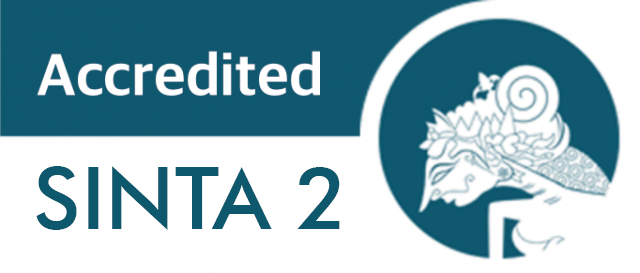Teacher Professionalism in Indonesia, Malaysia, and New Zealand
DOI:
https://doi.org/10.15408/tjems.v6i2.11487Keywords:
education, professionalism, teachers, Indonesia, Malaysia, New ZealandAbstract
Abstract
Issues related to teacher professionalism may differ among countries. In Indonesia, the problems of teacher professionalism are connected to pre-service education and the lack of continuous professional development. In Malaysia, the major issues are concerned with teaching and management skills of teachers. In New Zealand, teachers face major issues related to work overload and the feeling of poor payment. Using a qualitative approach, this conceptual research paper discusses the issues of teacher professionalism and how the government takes roles in the continuing professional development of teachers in Indonesia, Malaysia and New Zealand. The research data was collected from the existing literature containing descriptions and discussions on the research topic and then analyzed using content analysis. The major findings of the study include that these three counties have issued laws, legislation, and regulations regarding the teacher profession. Then, teachers in the three countries are required to have the teacher’s standard competence embodied with a certificate. In addition, before entering the classroom, all New Zealand teachers must have a certificate of teaching eligibility, while in Malaysia and Indonesia, the teacher certification is executed when teachers are already in the service. Finally, compared to Indonesia and Malaysia, New Zealand has a complete plan for improving teacher professionalism. The study concludes that the three countries put serious effort into improving the teaching profession. Similar research with more country samples would enrich the understanding of ways in which teacher professional development is conducted, thus providing valuable lessons for future reflections.
Abstrak
Masalah terkait dengan profesionalisme guru mungkin berbeda di setiap negara. Di Indonesia, masalah profesionalisme guru terkait dengan pendidikan pra-jabatan dan kurangnya pengembangan profesional berkelanjutan. Di Malaysia masalah utama berkaitan dengan keterampilan mengajar dan manajemen guru. Di Selandia Baru, guru menghadapi masalah besar terkait dengan kelebihan beban kerja dan persepsi terhadap rendahnya gaji guru. Menggunakan pendekatan kualitatif, artikel penelitian konseptual ini membahas masalah profesionalisme guru dan bagaimana pemerintah berperan dalam pengembangan profesional guru berkelanjutan di Indonesia, Malaysia dan Selandia Baru. Data penelitian dikumpulkan dari literatur yang berisi deskripsi dan diskusi tentang topik penelitian, dan kemudian dianalisis menggunakan analisis konten. Temuan utama dari penelitian ini adalah bahwa tiga negara ini telah mengeluarkan undang-undang, peraturan perundang-undangan, dan peraturan tentang profesi guru. Kemudian, guru di tiga negara harus memiliki kompetensi standar guru yang diwujudkan dengan sertifikat. Selain itu, sebelum memasuki ruang kelas, semua guru Selandia Baru harus memiliki sertifikat kelayakan mengajar, sementara di Malaysia dan Indonesia sertifikasi guru dilaksanakan ketika guru sudah berada dalam layanan. Akhirnya, dibandingkan dengan Indonesia dan Malaysia, Selandia Baru memiliki rencana yang lebih lengkap dalam meningkatkan profesionalisme guru. Studi ini menyimpulkan bahwa ketiga negara melakukan upaya serius dalam meningkatkan profesi guru. Penelitian serupa dengan lebih banyak sampel negara akan memperkaya pemahaman tentang cara-cara di mana pengembangan profesional guru dilakukan, sehingga memberikan pelajaran berharga untuk refleksi di masa depan.
How to Cite: Kholis, N., Murwanti. (2019). Teacher Professionalism in Indonesia, Malaysia, and New Zealand. TARBIYA: Journal of Education in Muslim Society, 6(2), 179-195. doi:10.15408/tjems.v6i2. 11487.
References
'Abd Allah, A. a.-R. S. (1982). Educational theory: a Quranic outlook. Makkah: Um al-Qura University, Faculty of Education, Educational & Psychological Research Center.
Abdullah, N. H., Shamsuddin, A., Wahab, E., & Muazu, M. H. (2018). Participation in continuous professional development training and perceived teaching assessment: A case study at the Malaysian Technical University. Business and Economic Horizons, 14(3), 530-541. doi:10.15208/beh.2018.38
Abubakar, A. (2016). Dampak sertifikasi guru terhadap kualitas pendidikan pada Madrasah Aliyah di kota Kendari. Al-Qalam, 21(1), 117. doi:10.31969/alq.v21i1.204
Azizi, N. A. (2019). Shaping English language education in Malaysia URL https://www.nst.com.my/news/nation/2019/12/544653/shaping-english-language-education-malaysia
Badrun, B. P. (2016). Dampak Sertifikasi Guru Terhadap Peningkatan Kualitas Pendidikan Pada Madrasah Aliyah Di Kota Palu. Al-Qalam, 22(1), 141–156. doi:10.31969/alq.v22i1.276
Bicaj, A. (2014). The effect of teacher professional development in raising the quality of teaching (pilot research). Academic Journal of Interdisciplinary Studies, 3(6), 369. doi:10.5901/ajis.2014.v3n6p369
Biebricher, C. (2015). Effects of a professional development programme on New Zealand Language teacher beliefs and teaching practice. In The Asian Conference on Language Learning 2015: Official Conference Proceedings (pp. 13). Kobe, Japan: IAFOR.
Bothwell, E. (2017). New Zealand ‘top in world’ for preparing students for future URL https://www.timeshighereducation.com/news/new-zealand-top-world-preparing-students-future#survey-answer
Cambridge International. (2018). Malaysian teachers are amongst the most dedicated in the world for ensuring students achieve academic success URL https://www.cambridgeinternational.org/news/news-details/view/malaysian-teachers-are-amongst-the-most-dedicated-in-the-world-for-ensuring-students-achieve-academic-success-28-nov2018
Cheng, D. (2019). $95 million in budget package for thousands of new teachers URL https://www.nzherald.co.nz/nz/news/article.cfm?c_id=1&objectid=12227095
Danumiharja, M. (2014). Profesi Tenaga Kependidikan. Yogyakarta: Deepublish.
Delors, J. (1996). Learning: the treasure within; report to UNESCO of the International Commission on Education for the Twenty-first Century - UNESCO Digital Library. Paris: UNESCO Publishing.
Dhamotharan, M., Vijayan, P., & Loh, C. (2019). Continuing Professional Development for ECCE Teachers in Selected States in Malaysia: What Teachers and Operators Say. Advances in Social Sciences Research Journal, 6(4), 301-315. doi:10.14738/assrj.64.6471
Education Council. (2017). Our code, our standards: Code of professional responsibility and standards for the teaching profession. Wellington, New Zealand: Education Council.
Evers, A. T., & Van der Heijden, B. I. J. M. (2017). Competence and professional expertise. In M. Mulder & J. Winterton (Eds.), Competence-based Vocational and Professional Education (pp. 83-101). Nethelands: Springer.
Evetts, J. (2013). Professionalism: value and ideology. Current Sociology, 61(5-6), 778-796. doi:10.1177/0011392113479316
Gore, J., Lloyd, A., Smith, M., Bowe, J., Ellis, H., & Lubans, D. (2017). Effects of professional development on the quality of teaching: results from a randomised controlled trial of quality teaching rounds. Teaching and Teacher Education, 68, 99–113. doi:10.1016/j.tate.2017.08.007
Hynds, A. S., Hindle, R., Savage, C., Meyer, L. H., Penetito, W., & Sleeter, C. (2016). The impact of teacher professional development to reposition pedagogy for indigenous students in mainstream schools. The Teacher Educator, 51(3), 230-249. doi:10.1080/08878730.2016.1176829
Indonesian Govt. (2005). Undang-Undang Republik Indonesia Nomor 14 tahun 2005 tentang Guru dan Dosen.
Indonesian Govt. (2017). Peraturan Pemerintah Republik Indonesia Nomor 19 Tahun 2017 Tentang Perubahan Atas Peraturan Pemerintah Nomor 74 Tahun 2008 Tentang Guru.
Jayani, D. H. (2019). Jumlah Guru yang Tersertifikasi Belum Sampai 50% Databox. URL https://databoks.katadata.co.id/datapublish/2019/12/12/guru-sertifikasi-belum-sampai-50
JPNN. (2019). Guru non-pns belum sertifikasi tak perlu cemas, disiapkan RP591,1 M URL http://www.jpnn.com/news/guru-non-pns-belum-sertifikasi-tak-perlu-cemas-disiapkan-rp-5911-m
Khan, S., & Abdullah, N. N. (2019). The impact of staff training and development on teachers’ productivity. Economics, Management and Sustainability, 4(1), 37-45. doi:10.14254/jems.2019.4-1.4
Ko, J., Sammons, P., & Bakkum, L. (2016). Effective teaching. Reading, UK: Education Development Trust.
Leng, Y. K. (2018). Malaysia’s budget 2019: The new Government’s Fiscal Priorities, Challenges and Opportunities. ISEAS Perspective(80), 8.
LPS. (2017). Apa keuntungan memiliki pengakuan dari lembaga sertifikasi profesi dan kompetensi training for trainer? URL http://www.lsp-ipi.org/apa-keuntungan-memiliki-pengakuan-dari-lembaga-sertifikasi-profesi-dan-kompetensi-training-trainer
Lunenberg, M., Dengerink, J., & Korthagen, F. (2014). The professional teacher educator. Rotterdam: SensePublishers.
Mahmud, S. N. D., Nasri, N. M., Samsudin, M. A., & Halim, L. (2018). Science teacher education in Malaysia: challenges and way forward. Asia-Pacific Science Education, 4(1), 8. doi:10.1186/s41029-018-0026-3
Marsyaf, M. I. (2019). Kemenag bayar lunas tunjangan guru inpassing URL https://nasional.sindonews.com/read/1370983/15/kemenag-bayar-lunas-tunjangan-guru-inpassing-1547634042
Marwan, A., Sumintono, B., & Mislan, N. (2012). Revitalizing rural schools: A challenge for Malaysia. In Educational Issues, Research and Policies (pp. 172-188). Skudai, Johor Bahru: UTM Press RMC.
MOE Malaysia. (2012). Malaysian Education Blueprint 2013-2025. Putrajaya: MOE.
MOE Malaysia. (2016). Pelan induk pembangunan profesional keguruan (PIPPK). Putrajaya: Pusat Pentadbiran Kerajaan Persekutuan.
MOE New Zealand. (2010). OECD review on evaluation and assessment frameworks for improving school outcomes: New Zealand country background report 2010. Wellington] N.Z.: Ministry of Education.
MoEC. (2013). Peraturan Menteri Pendidikan Dan Kebudayaan Republik Indonesia Nomor 62 Tahun 2013 Tentang Sertifikasi Guru Dalam Jabatan Dalam Rangka Penataan Dan Pemerataan Guru.
MoEC. (2019). Pusat Data dan Statistik Pendidikan URL http://statistik.data.kemdikbud.go.id/index.php/page/smk
MoRA. (2019). EMIS | Dashboard | Pendis Kemenag. In.
Muamar, Darmoko, P. D., Srifariyati, & Muntoha. (2017). Dampak tunjangan sertifikasi terhadap kinerja guru. Madaniyah, 7(1), 25.
Muflihin, H. (2012). Kinerja tenaga pendidik pascasertifikasi. FORUM TARBIYAH, 10(2), 16.
Muslich, M. (2007). Sertifikasi guru menuju profesionalisme pendidik. Jakarta: Bumi Akasara.
NCEE. (2015). New Zealand: Teacher and principal quality URL http://ncee.org/what-we-do/center-on-international-education-benchmarking/top-performing-countries/new-zealand-overview/3866-2/
New Zealand Govt. (2019a). Pay in New Zealand education URL http://www.education.govt.nz/school/people-and-employment/pay-leave-and-personal-development/pay
New Zealand Govt. (2019b). Professional development Education. URL https://www.education.govt.nz/school/people-and-employment/pay-leave-and-personal-development/professional-development
Nursalikah, A. (2019). Kemenag Segera Umumkan Hasil Sertifikasi Guru Madrasah Republika Online. URL https://republika.co.id/berita/q2cf00366/kemenag-segera-umumkan-hasil-sertifikasi-guru-madrasah
OECD. (2009). Creating effective teaching and learning environments: first results from TALIS. Paris: OECD.
OECD. (2018). The future of education and skills education 2030. Paris, France: Secretary-General of the OECD.
OECD. (2019a). OECD Economic Surveys: Malaysia 2019. Paris: OECD Publishing.
OECD. (2019b). TALIS 2018 Results (Volume I): Teachers and School Leaders as Lifelong Learners. Paris: OECD Publishing
Office of the Auditor-General. (2008). Ministry of Education: supporting professional development for teachers. Wellington, N.Z: Office of the Auditor-General.
Omar, R., Ab. Rashid, R., & Mohamad, A. (2019). Challenges for Professional Development of Malaysian ESL Teachers. Paper presented at the The Second Annual International Conference on Language and Literature.
Pnsdanguru.info. (2016). Ini keuntungan mengikuti sertifikasi guru tahun 2018 URL https://www.pnsdanguru.info/2018/03/ini-keuntungan-mengikuti-sertifikasi.html
Prasasti, G. D. (2018). 3 ciri guru profesional menurut mendikbud URL https://www.liputan6.com/health/read/3731693/3-ciri-guru-profesional-menurut-mendikbud
Rahman, M. J. A., Sheng, L. W., Daud, M. Y., & Ensimau, N. K. (2019). The Relationship between Efficiency and Level of Satisfaction on CPD among Teachers. Creative Education, 10(12), 12. doi:10.4236/ce.2019.1012246
Rice, B. M. (2019). Global perspectives on inclusive teacher education. Hershey, PA: Information Science Reference.
Saad, K. A., Walsh, B., Mallaburn, A., & Brundrett, M. (2017). Exploring the implementation of a professional learning communities in malaysian’s schools. International Journal of Education, Psychology and Counseling, 2(5), 1-18.
salaryexplorer.com. (2019). Teaching / education average salaries in Malaysia 2019 URL http://www.salaryexplorer.com/salary-survey.php?loc=130&loctype=1&job=50&jobtype=1
Samani, M. (2006). Mengenal sertifikasi guru di Indonesia. Surabaya: SIC dan Assosiasi Peneliti Pendidikan.
Sani, R. (2019). Addressing the challenges in teaching English URL https://www.nst.com.my/education/2019/09/520502/addressing-challenges-teaching-english
Schwab, K. (2017). The global competitiveness report 2017–2018. Geneva, Switzerland: World Economic Forum.
Sharkey, C. (2018). What is a professional educator? URL https://www.astapro.org/index.php/about-us/the-professional-educator
Sikandar, A. (2016). John Dewey and his philosophy of education. Journal of Education and Educational Development, 2(2), 191. doi:10.22555/joeed.v2i2.446
Siswandari, & Susilaningsih. (2013). Dampak sertifikasi guru terhadap peningkatan kualitas pembelajaran peserta didik. Jurnal Pendidikan dan Kebudayaan, 19(4), 487. doi:10.24832/jpnk.v19i4.305
Starkey, L., Yates, A., Meyer, L. H., Hall, C., Taylor, M., Stevens, S., & Toia, R. (2009). Professional development design: Embedding educational reform in New Zealand. Teaching and Teacher Education, 25(1), 181-189. doi:10.1016/j.tate.2008.08.007
Sumardjoko, B., & Prasetyo, A. (2016). Pengembangan profesionalisme guru SMA, MA, dan SMK Muhammadiyah Sukoharjo jawa tengah. Jurnal VARIDIKA, 28(1), 77. doi:10.23917/varidika.v28i1.2407
Suryana, S. (2017). Permasalahan mutu pendidikan dalam perspepektif pembangunan pendidikan. Edukasi, 2(1), 12.
Suyanto, & Jihad, A. (2013). Menjadi guru profesional: Strategi meningkatkan kualifikasi dan kualitas guru di era global. Jakarta: Erlangga Group.
Syafmen, W. (2014). Studi tentang dampak sertifikasi terhadap kompetensi pedagogik dan profesional guru matematika di SMPN kota Jambi. EDUMATICA Jurnal Pendidikan Matematika, 4(01), 7.
Tim Dosen PAI. (2016). Bunga rampai penelitian dalam pendidikan agama Islam. Yogyakarta: Deepublish.
Timperley, H., Wilson, A., Barrar, H., & Fung, I. (2007). Teacher professional learning and development: Best evidence synthesis iteration. Wellington, NZ: Ministry of Education.
Tomorrow's Schools Independent Taskforce. (2019). Our Schooling Futures: Stronger Together Wellington: NZ: Ministry of Education.
UNESCO. (2012). Word data on education (7 ed.). Geneva, Switzerland: International Bureau of Education.
Wafi, A. (2019). The Struggles of Teachers in Malaysia URL https://graduan.com/the-struggles-of-teachers-in-malaysia
Watloly, A. (2001). Tanggung jawab pengetahuan: Mempertimbangkan epistemologi secara kultural. Yogyakarta: Kanisius.
Yang, Y., Liu, X., & Gardella Jr, J. A. (2018). Effects of professional development on teacher pedagogical content knowledge, inquiry teaching practices, and student understanding of interdisciplinary science. Journal of Science Teacher Education, 29(4), 263-282. doi:10.1080/1046560X.2018.1439262
Yoo, J. H. (2016). The effect of professional development on teacher efficacy and teachers’ self-analysis of their efficacy change. Journal of Teacher Education for Sustainability, 18(1), 84-94. doi:10.1515/jtes-2016-0007
Zulaekha, N. (2011). Panduan sukses lulus sertifikasi guru. Yogyakarta: Pinus Book Publisher.











